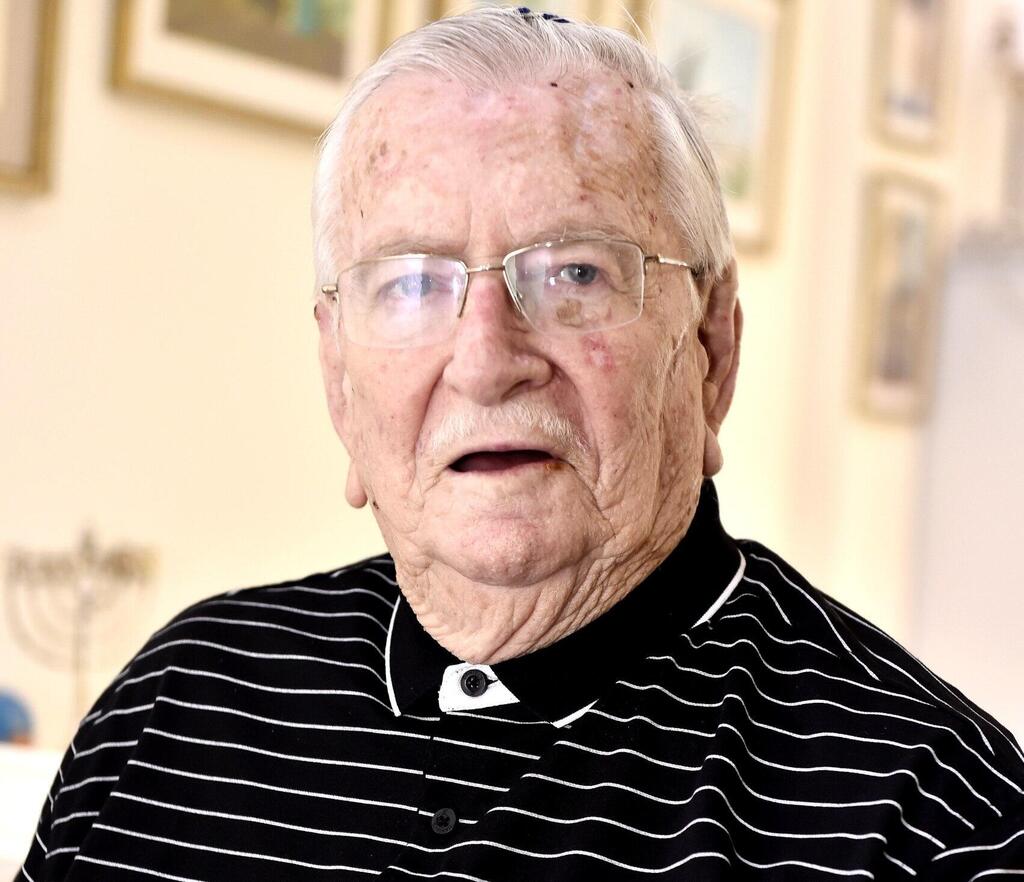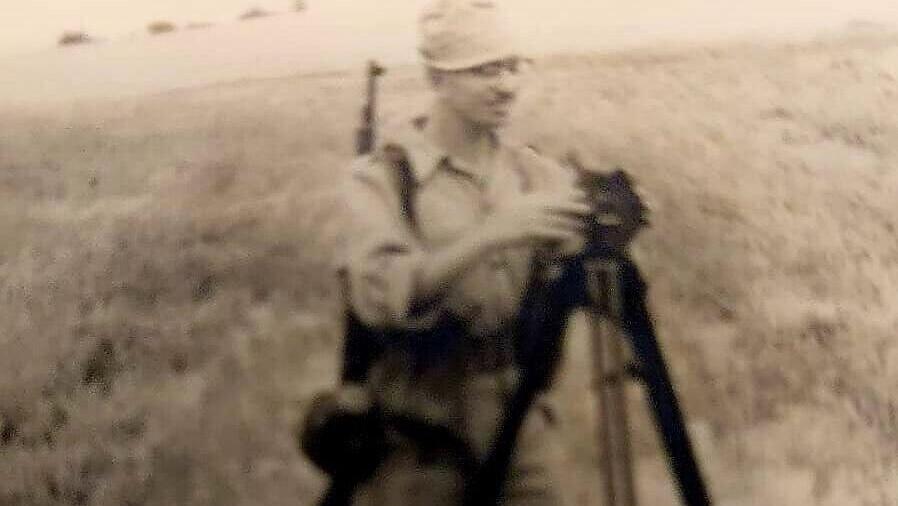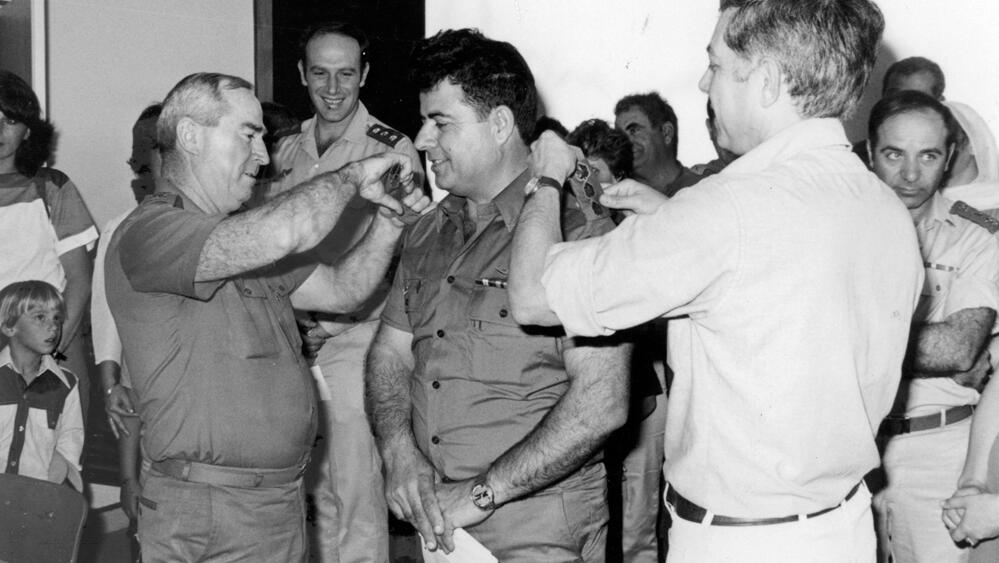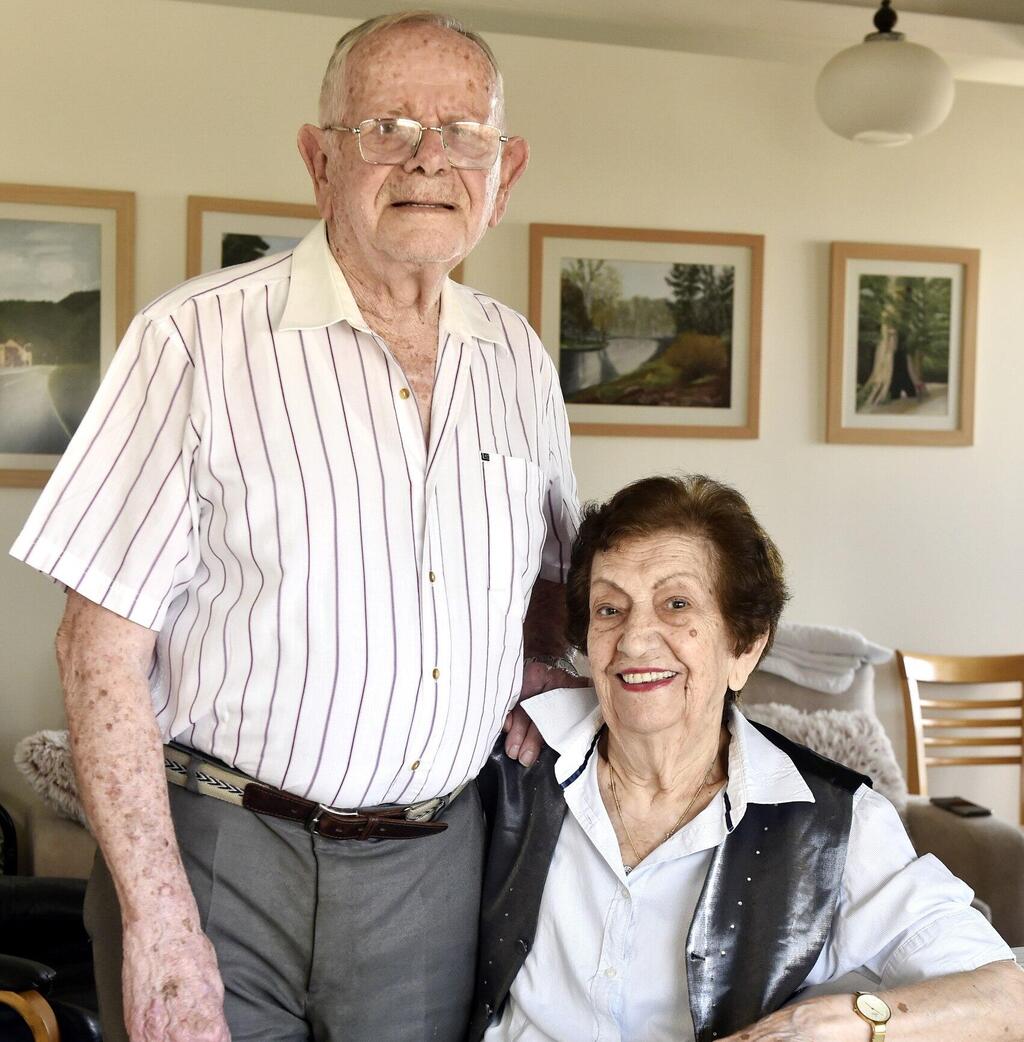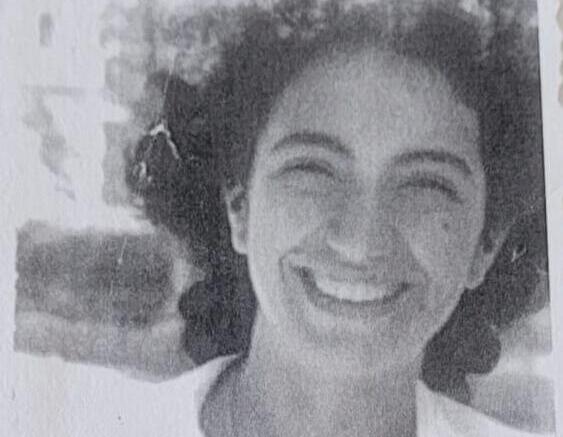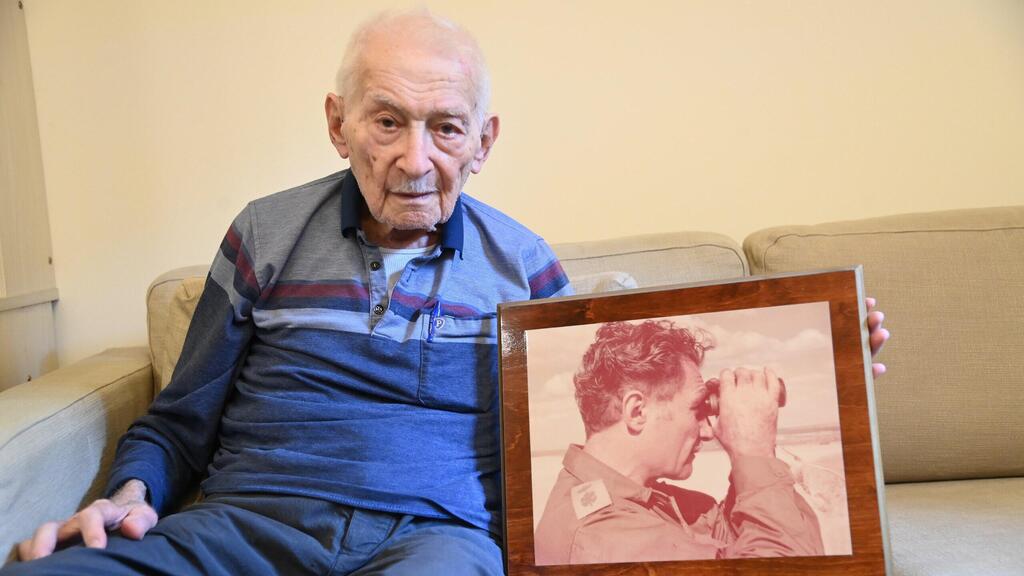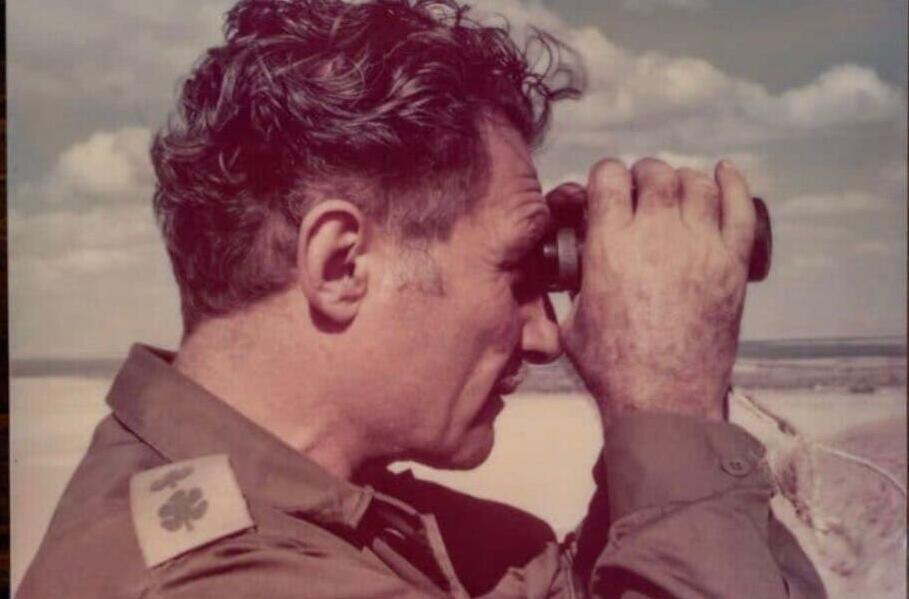On May 26, 1948, David Ben-Gurion signed the order establishing the Israel Defense Forces (IDF), officially forming the military of the nascent Jewish state.
More stories:
This occurred just two weeks after he proclaimed the establishment of the State of Israel, during the height of the War of Independence while the recruits were already deeply engrossed in the battles.
8 View gallery
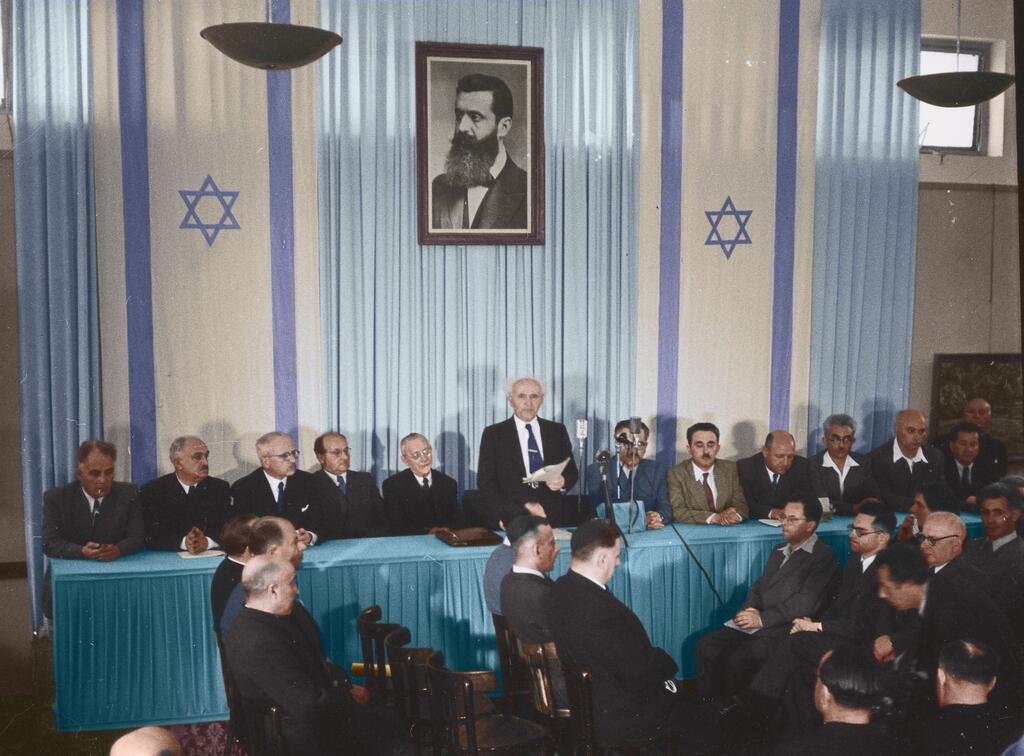

David Ben-Gurion at the declaration of independence, in Tel Aviv, May 14, 1948
(Photo: GPO)
Prior to the establishment of the state, the recruits were members of various paramilitary groups, armed and ready to sacrifice everything for their homeland. Nevertheless, joining the IDF was a significant symbolic event for them.
So what exactly did those momentous days look like? Four former soldiers reflect on their journeys as Israel's earliest heroes.
"We were guarding positions in Ramla when suddenly a photographer arrived, took our picture, and immediately handed us soldier identification booklets. That's how we were officially conscripted. There was no militarization process. Each soldier had their own uniform, and if someone wanted more, they would go to 'Ata' and buy it themselves," recounts 93-year-old Chaim Schechter.
Schechter, born in Hungary, decided he wanted to volunteer to fight for the Zionist cause prior to the establishment of the state. He joined the Partial Service Unit, which was intended for boys under the age of 18. In 1948, when he turned 18, Schechter enlisted in the Kiryati Brigade, one of the original nine brigades that made up the Haganah.
״Before the establishment of the IDF, our role primarily involved guarding and fortifying posts, because there weren't enough soldiers. We were called to stand guard several times a week," Schechter adds.
"When Ben-Gurion declared the establishment of the state, we were called to full service. On the day I was officially conscripted, I felt great pride. I am a Zionist since birth, and it was a big moment for me.
From that point on, things became more organized. We slept in tents in the camp, and I stopped going home regularly, unlike in the Haganah. I served for two years and eight months. It was an organized army, composed of underground fighters and new recruits. We spoke Hebrew, Russian, and various other languages. The army matured me greatly. We lived and breathed the IDF. It had an impact on me and on who I am."
Chaim and Tzipora Beck, both 93 years old, joyfully share memories and experiences from the early days of the IDF. Chaim Beck comes from a traditional Jerusalemite family, and he shared that "the first printing press in the country, the first agricultural settlement, and the great synagogue in the Old City, Tiferet Yisrael," all belonged to his family, as well as the second-ever Israeli newspaper Chavatzelet.
He enlisted in the Palmach, underwent a medic course, and served in the Negev Brigade. "I was recruited between battles," describes Chaim. "We were in the Negev, quite disconnected, and when they announced the establishment of the IDF, they simply swore us into the army during one of our breaks. They didn't make a big deal out of it. We had just experienced heavy shelling, and we were engaged in combat against the Egyptians. And the truth is, before and after that, it remained the same: the same units, the same people."
Chaim stated that "the army back then was completely different."
"We were all friends. My platoon commander was my best friend. There was no distance at all, yet the discipline was very high, without faults, out of personal commitment."
Chaim was released two years later after being injured but continued to serve in the reserves until the age of 50. "During the Six-Day War, I said that I was fighting so that my children wouldn't have to fight in the future. Eventually, all my children enlisted, and my daughter even became the first airborne doctor in the IDF," he shares.
"At the end of the war, we were in Bethlehem, and then [Poet] Naomi Shemer came to perform. She sang Jerusalem of Gold for the first time with the new lyrics. We applauded, and she said that we deserved a round of applause because we did all the work."
Chaim's wife, Tzipora, also born in Jerusalem, was a member of the HaNoar HaOved VeHaLomed youth movement. In 1945, she joined the Gadna - a program that prepares young people for military service, and also volunteered in Shai - the intelligence and counter-espionage arm of the Haganah and precursor to the Military Intelligence Directorate in British Mandate Palestine. "I was a kind of courier," she recalls.
"With the establishment of the IDF, I was sent to Tel Aviv, and there they discharged me from my previous role, gave me a service number, and re-enlisted me in the Shin Bet (security service)... and I remained in the organization for 20 years." Tzipora described that at the time "there was complete equality, women alongside men. We didn't feel inferior or less competent. On the contrary, I was the youngest and therefore received special attention."
A maverick and a hero
Eliezer Ben-Ami, 99 and a half years old, is known as the father of the "Orange Grenades." He made such grenades for Lehi member Moshe Barzani and Irgun member Meir Feinstein, who were sentenced to death by the British and detonated themselves a few hours before their execution.
Ben-Ami was a member of the Irgun (also known by its Hebrew acronym Etzel) until he left and enlisted in the Palmach. In 1943, he was sentenced by the British to six years in prison, of which he served five. Three months after his release from prison, he was called to enlist in the IDF.
"I arrived at the recruitment office they established in Tel Aviv, and I received a service number, uniform, and everything needed. Two weeks later, the Lehi approached me and said they wanted me to attend a demolition training course. I replied that I don't take orders from anyone because I'm a soldier in the Israeli Defense Forces," Ben-Ami recounts.
Ben-Ami was quite the character, and knew no fear. Even when he joined the army, he acted on his own terms. "I enlisted under a false name," he said. "I chose to enlist as Eliezer Reznitsky. I took the last name of my girlfriend, who waited for me for five years while I was in prison, and later she became my wife.
I knew that the [Ben-Gurion's] Mapai Party didn't want the borders I wanted for the country, and that the IDF wouldn't be the liberation army of the Israeli nation. So, I acted as I did underground, where we had nicknames. I changed my last name so that I wouldn't be recognized, in case I needed to fight beyond the borders that the IDF set. Only when I received the rank of sergeant did I return to my original last name."
Ben-Ami enlisted in the 8th Armored Brigade, the only unit in the IDF to be equipped with tanks under the command of Yitzhak Rabin. Afterward, he transferred to the Combat Engineering Corps, then to the Technology and Maintenance Corps, and then back to engineering. He enlisted in the first Engineering Officers Course, in which he excelled, and went on to fulfill various roles: sapper, explosives instructor and also higher-ranking roles.
"I wasn't an easy nut to crack, but everyone knew that I gave it my all. I was a perfectionist," he said. "Because of that, they assigned me numerous tasks unrelated to my position."
According to Ben-Ami, "There was also a time when I was recommended for receiving the Medal of Courage. The problem was that it was because of a mission I performed excellently, but not exactly as the commanding officer requested. Therefore, along with his recommendation, he also filled out a complaint form.
The chief engineering officer decided to cancel both the recommendation and the complaint, and I was left with neither the medal nor a punishment. Honestly, I got off easy."


